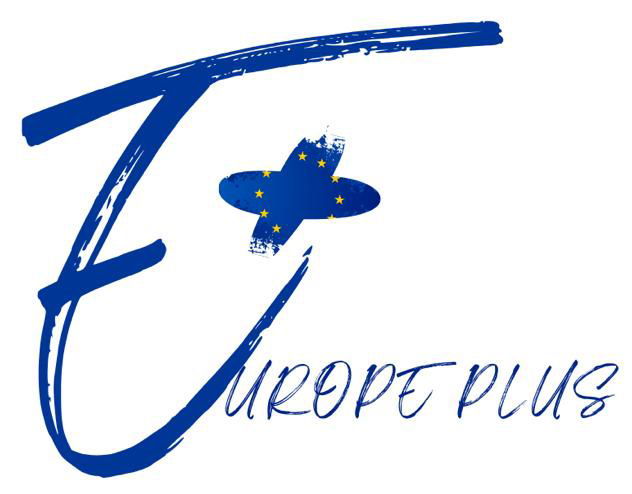On 02 – 05 December 2024, E+ and ACIT implemented a 4‑day executive training tailored to senior civil servants in Western Balkans parliaments and ministries who work with CRM policies. Participants had the opportunity to enhance and deepen their knowledge of the Common Regional Market and its mechanisms, the EU single market, measures required in the next stages of the integration process, with a focus on fundamentals, and challenges to be encountered.
Objective
Support regional exchange and enhance the technical capacity of parliamentary and ministry staff in CRM-related policies.
1. Preparation: Designing a Tailored 4-Day Executive Training
- A bespoke 4-day program for 21 Western Balkan civil servants (representatives of parliaments & ministries) focused on CRM, the Growth Plan for the Western Balkans, and regional cooperation.
- The agenda was refined through iterative stakeholder input and enriched by expert moderators and speakers.
- The program featured an introductory day, hands-on methodology, and peer interaction to accommodate diverse participant backgrounds.
Training Implementation & Session Overview
Day 1 – Framing the CRM & Regional Integration
- Opening dignitaries:
- Ms Majlinda Bregu, Secretary General, RCC
- Mr Endrit Yzeiraj, Deputy Foreign Minister, Albania
- Ms Maja Handjiska Trendafilova, Director, ReSPA
Each emphasized the strategic importance of CRM in regional integration and public sector readiness.
- Expert panel discussion: Featuring experts Elda Kalaja (RCC), Prof. Milica Uvalic (EUI), Prof. Will Bartlett (LSE), Klodjan Seferaj (OSF‑WB), Prof. Odeta Barbullushi (College of Europe). Moderator Blerjana Bino (SciDev) steered discourse on rule of law, anti-corruption, administrative reform, brain drain, and EU synergies.
- Interactive networking session: Participants provided brief presentations on their roles and institutional experience with CRM, laying groundwork for peer engagement.
Day 2 – Trade, Policy Instruments & Institutional Dynamics
- CRM Phase 1 overview: Presented by Ms Pranvera Kastrati (RCC), with emphasis on lessons learned and regional cooperation hurdles.
- CEFTA case study: Shared by Mr Zdravko Ilic, demonstrating trade liberalization successes and challenges in services harmonization.
- EU Single Market & CRM policy deep dive: Delivered by Mr Bernard Brunet (former DG NEAR). He addressed:
- Free movement of goods
- Horizontal trade facilitation
- Core single market pillars and policy alignment
This was followed by breakout discussions on institutional implications for participant countries.
Day 3 – Mobility, Skills, and Regional Cooperation
- Berlin Process overview: Featuring Ms Valeska Esch (German Federal Government Adviser), who connected Germany’s policy frameworks to Balkan reforms and CRM momentum.
- Free movement of services: Prof. Adam Lazowski (University of Westminster) led a comprehensive session enriched with Q&A and specific case examples on mutual recognition of professional qualifications.
- Mobility and human capital assets: Prof. Odeta Barbullushi explored free movement of people, migration trends, brain drain mitigation strategies, and regional skill development programmes. Discussion included reflections from participants on emerging national initiatives.
Day 4 – Growth Strategy, Digitalization & Strategic Communication
- Growth Plan insights: Ms Anna Vezyroglou (DG NEAR) spoke in-depth about the Growth Plan’s support mechanisms for CRM, EU enlargement priorities, and next-stage integration steps.
- Digital economy readiness: Mr Erjon Curraj led on digital transformation trends, AI adoption, regulatory frameworks, and public sector adaptation—eliciting active queries on national readiness and digital skilling.
- Strategic communications workshop: Mr Jakov Bojovic (EUI Florence) orchestrated a group exercise that combined communication strategy with messaging practice. Participants drafted CRM evidence-based messaging campaigns, receiving feedback on clarity, public trust, and media engagement tactics.
3. Outcomes & Impact
Participant Advancement
- Enhanced policy proficiency: Participants acquired a sharpened understanding of CRM mechanics and Growth Plan alignment.
- Improved technical skillset: Workshops and expert-led sessions increased capacities in trade policy, mobility legislation, and digital transformation frameworks.
- Expanded regional networks: Structured peer interactions and shared experiences forged connections, potentially contributing to stronger intergovernmental ties.
Institutional Benefits
- Policy team reinforcement: Ministries and parliaments gained access to a cadre of trained personnel better equipped to design and implement CRM-aligned strategies.
- Strengthened cooperation pathways: The programme provided a template for cooperation across economies, and cross-sectoral dialogue enhancing future collaborative projects.
- Roadmap for follow-through: Insights gathered will inform next phases of CRM implementation, including national rollout plans, digital policy pilot projects, and communications strategies.
Stay Tuned
This executive training marks a pivotal step in building CRM competencies across the region. Stay connected for upcoming initiatives and follow-up sessions regarding regional cooperation issues.
